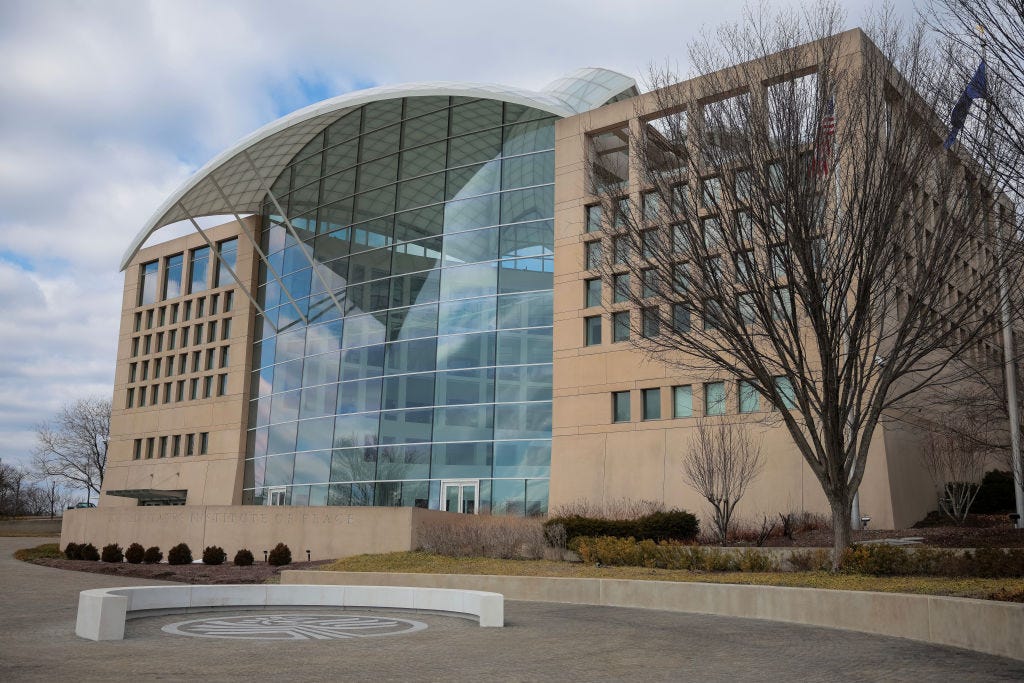Unwinding Government's 'U.S. Institute of Peace' Unlikely to Undermine Peace
Trump targets another dubious arm of U.S. foreign policy. Media descriptions of USIP fall short of its actual history.
The United States Institute of Peace building is just steps from the Lincoln Memorial and the Federal Reserve and stands tall among the stately monuments along Constitution Avenue. The palatial structure features a distinctive curved rooftop facade, styled as a dove's drooping wing, that finished construction in 2011 at well over $100 million.
The USIP is every bit the Orwellian D.C. swamp entity. The taxpayer-funded think tank is hardly a bulwark for peace on earth, as the name suggests.
The organization functions mainly as a bureaucratic redoubt of warmongers and advocates for sustained American military intervention abroad. Its leadership in recent years includes Stephen Hadley and Eric Edelman, the senior Bush administration officials involved in the War on Terror. Roger Zakheim, a USIP board member, is a former defense industry lobbyist who has pushed publicly for higher defense budgets and direct U.S. military involvement in Gaza and Iran.
Far from building a lasting peace, much of USIP’s regular work involves hosting American military leaders to discuss the maintenance of U.S. empire. The USIP regularly publishes articles and podcasts on the importance of increased NATO armaments and the need to increase economic sanctions on U.S. adversaries.
For instance, a recent report from the institute argues in favor of the installation of long-range missiles in Germany. The system is designed to launch nuclear weapons into Russia.
Over the last few years, the USIP has pursued a curious line of advocacy around Afghanistan. After the U.S. withdrawal in 2021, the ruling Taliban government rapidly snuffed out widespread poppy cultivation, effectively ending the heroin trade – which had long flourished under local warlords and other allies of the U.S.-backed occupation government.
The end of the heroin trade, however, is strongly opposed by USIP.
The institute has published several reports decrying the end of the trade as dangerous because Afghan farmers are now growing “low-value wheat” and other agricultural products. The new economy, USIP warned in December, may “worsen rural poverty, increase dissatisfaction among landholders and spur political instability.”
“It's mind-blowing to see the principles of American narco-capitalism stated so plainly,” noted Seth Harp, a journalist who has written extensively about the Afghan conflict. “Fuck food, grow drugs, get rich or die trying.”



